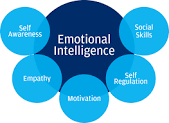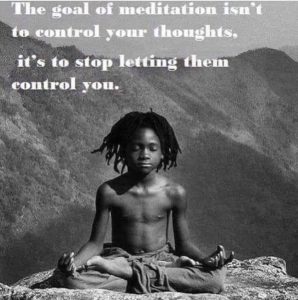The happiness of our lives depends upon the quality of our thoughts. Marcus Aurelius
I’ve tried meditating many times over the years but never stuck with it. However, since March 2020, I’ve committed to a daily practice. It wasn’t because of Covid, but it was a result of hiking with a friend during Covid. It was during one of our many hikes that I learned how her four year meditation practice changed her life: not only did she lose weight, but more significantly, she no longer carries any traces of lymphoma in her body– something her doctors said she would have the rest of her life.
So, it got me wondering what a regular practice could do for me. I don’t have any serious health issues, but I was curious about the mental and emotional benefits. Too often, I notice negative, limited, judgmental thoughts, or even too many thoughts, clouding my perspective and distracting me from what’s true.
Meditation is just one of many mindfulness practices. And while mindfulness is often associated with our personal or spiritual lives, it can offer valuable workplace benefits.
BACKGROUND
Studies show that we process 16 to 60 thousand thoughts a day. Of those thoughts, 95% are repetitive while 80% are negative. Bottom line? Unproductive thinking is part of the human condition, and that’s where mindfulness can help.
Definition
Mindfulness is “a mental state achieved by focusing one’s awareness on the moment, while at the same time calmly acknowledging and accepting feelings, thoughts, and bodily sensations.”
By being present, we can start identifying negative or unhelpful patterns, recognize that we are separate from our thoughts, and choose, if needed, a better response, even if it’s just acceptance.
Types: There are many ways to promote mindfulness: eating, standing, walking, feeling feelings, focusing on the breath, doing one thing at a time, engaging in physical activities for which we have a passion.
REASONS WE DON’T
We think It’s too hard to calm our mind. It’s a weird cult thing. It’s too spiritual, or we’re not the type. It seems unproductive; we want action and immediate results. We’re attached to the way we do things and don’t want to change
 WHY WE SHOULD
WHY WE SHOULD
There’s lots of research that mindfulness contributes to Emotional Intelligence: the ability to manage, use, and understand emotions in positive ways, In the workplace, that can translate into increased productivity, respect, and collaboration, along with less stress and more focus.
And More
It’s easy to get hijacked by our emotions and then disregard or discount what’s true or possible—whether it’s dealing with a challenging coworker or taking healthy risks. By becoming aware of thoughts and feelings, we can learn to accept or acknowledge them without making false meaning or allowing them to define us.
 Since noticing my own negative, limited, and judgmental patterns, I ‘ve been able to put more energy into networking, prioritizing work that inspires me, and increasing my online presence, even though I’m not always comfortable. Would I have done this without meditating? Probably, but who knows when. Meditation has helped me to increase self-understanding and awareness resulting in the ability to move forward. However, it’s all still a work in progress.
Since noticing my own negative, limited, and judgmental patterns, I ‘ve been able to put more energy into networking, prioritizing work that inspires me, and increasing my online presence, even though I’m not always comfortable. Would I have done this without meditating? Probably, but who knows when. Meditation has helped me to increase self-understanding and awareness resulting in the ability to move forward. However, it’s all still a work in progress.
Mindfulness, like anything else, takes practice, willingness and commitment. Back in March, it took a conversation with a friend for me to realize I was ready. What will it take for you to try?
